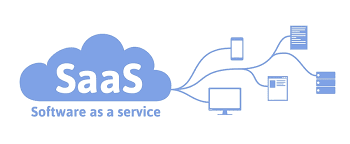
In today's fast-paced digital world, businesses of all sizes are constantly seeking ways to streamline their operations and increase efficiency. One powerful solution that has gained significant popularity is leveraging Software-as-a-Service (SaaS) platforms. SaaS platforms offer a wide range of benefits, from cost savings to scalability, making them a valuable asset for businesses across various industries. In this article, we will explore the advantages of SaaS platforms and discuss how they can be used to streamline business operations effectively.
Growing Adoption of SaaS Platforms
SaaS platforms have become increasingly popular among businesses due to their numerous advantages. They provide on-demand access to software applications and services over the Internet, eliminating the need for traditional on-premises installations. This cloud-based delivery model offers several benefits:
Cost-Effectiveness
One of the key benefits of leveraging SaaS platforms is cost savings. With SaaS, businesses can eliminate the need for upfront infrastructure investments and the associated maintenance costs. The pay-as-you-go pricing model allows companies to pay only for the resources they use, making it highly cost-effective. Additionally, SaaS platforms typically handle IT tasks and updates, reducing the need for dedicated in-house IT staff and associated expenses.
Scalability and Flexibility
SaaS platforms offer businesses the flexibility to scale their resources up or down based on their evolving needs. The onboarding processes are typically quick and straightforward, allowing businesses to start using the software immediately. This agility enables companies to respond to market changes and adapt their operations accordingly.
Seamless Collaboration and Communication
SaaS platforms provide businesses with centralized data and information, enabling teams to collaborate more effectively. Real-time collaboration tools, such as shared documents and project management software, facilitate efficient teamwork and reduce delays caused by manual processes. Additionally, SaaS platforms offer streamlined communication channels, including instant messaging and video conferencing, enabling teams to communicate and collaborate seamlessly regardless of their geographical locations.
Streamlined Business Processes
SaaS platforms offer automation capabilities that streamline repetitive tasks, saving time and reducing errors. By automating manual processes, businesses can free up their resources to focus on more strategic initiatives. Workflow optimization is another key advantage of SaaS platforms. They provide customizable workflows that align with specific business requirements, ensuring efficient and standardized processes across the organization.
Enhanced Security and Data Protection
Security is a critical concern for businesses when it comes to adopting cloud-based solutions. SaaS platforms address these concerns by implementing robust security measures. They employ data encryption to protect sensitive information and regularly update their security protocols to stay ahead of potential threats. Reputable SaaS providers also comply with industry regulations and undergo third-party audits to ensure data protection and privacy.
Integration Capabilities
SaaS platforms often come with integration capabilities, enabling seamless connectivity with other software applications. This integration eliminates the need for manual data entry and data duplication across different systems, saving time and reducing errors. By integrating various software tools, businesses can create an interconnected ecosystem where data flows smoothly between different departments and processes. For example, customer data from a CRM system can be automatically synchronized with an email marketing tool, enabling personalized and targeted communication. Integration capabilities enhance operational efficiency and provide a holistic view of business operations.
Automation and Process Efficiency
SaaS platforms often incorporate automation features that streamline repetitive tasks and workflows. By automating manual processes, businesses can significantly improve operational efficiency, reduce errors, and free up employees' time for more value-added activities. For example, an e-commerce business can automate order fulfillment and inventory management, ensuring timely deliveries and reducing stockouts. Automation also enables organizations to focus on strategic initiatives and innovation rather than spending time on mundane administrative tasks.
Enhanced Analytics and Insights
SaaS platforms offer robust analytics and reporting capabilities, providing businesses with valuable insights into their operations. These platforms collect and analyze data from various sources, generating meaningful reports and visualizations that help in making informed business decisions.
Considerations for Selecting SaaS Platforms
While SaaS platforms offer numerous benefits, businesses need to consider certain factors when selecting the right solution for their operations:
Compatibility with existing systems: Ensure that the SaaS platform integrates smoothly with your current software infrastructure to avoid any disruptions or compatibility issues.
Data privacy and security measures: Evaluate the security protocols and data protection measures implemented by the SaaS provider to ensure the safety of your sensitive information.
Vendor reputation and customer support: Research the reputation and track record of the SaaS provider, and assess their customer support services to ensure prompt assistance and effective troubleshooting when needed.
Conclusion
In conclusion, leveraging SaaS platforms can have a transformative impact on streamlining business operations. By embracing SaaS, organizations can enhance their operational efficiency, improve productivity, and gain a competitive edge in today's dynamic business landscape.
When it comes to leveraging SaaS platforms to streamline business operations, one platform that stands out is Betterplace. Betterplace is an all-in-one workforce management and compliance platform designed to simplify HR processes, ensure regulatory compliance, and enhance operational efficiency. With Betterplace, businesses can automate their onboarding and off-boarding processes, manage employee attendance and leave, and streamline payroll and compliance-related tasks. The platform offers a user-friendly interface, seamless integration with existing systems, and robust security features, making it a trusted choice for businesses of all sizes.
